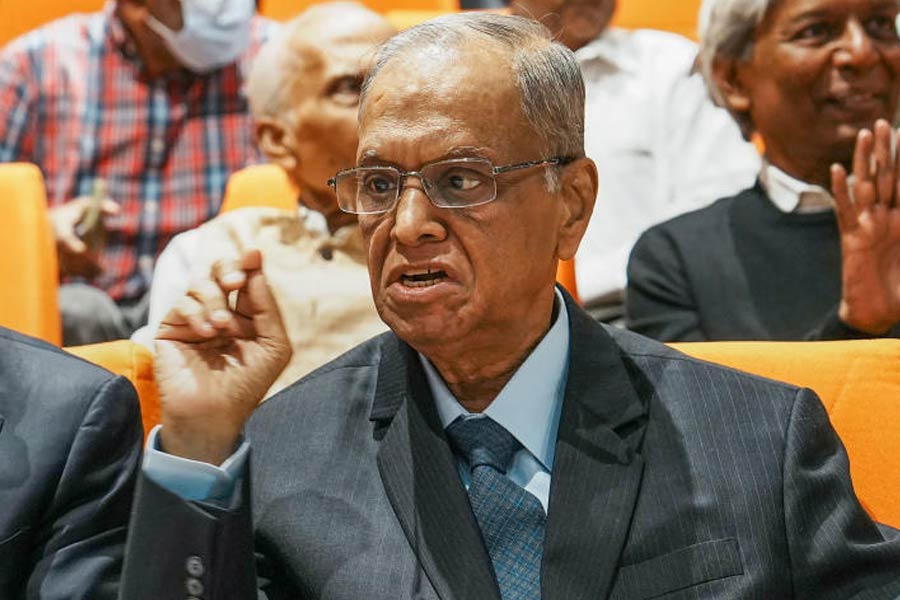No time
Sir — Time seems to be elastic for Narayana Murthy. Recently, the co-founder of Infosys was found lecturing people on good parenting and the need to inculcate the habit of reading in children. He claimed that he and his wife, Sudha Murty, used to spend hours reading with their children in order to encourage them to read. Reading with children, undoubtedly, is a good practice — storytelling can be a powerful tool to strengthen the bond between parents and their wards. But after working 70 hours a week, as prescribed by Narayana Murthy himself, will parents have time to read books to children?
Ritwik Bhaduri,
Calcutta
Wasteland
Sir — India produces around 10 million tonnes of plastic waste annually — more than double the amount produced by Nigeria and Indonesia combined (“Plastic flood”, Sept 12). The stringent laws against the production of single-use plastic items are flouted flagrantly. Companies that use plastic are not held responsible for the disposal of the same. They thus continue to manufacture plastic products that are hard to recycle.
A significant portion of the plastic waste generated by developed nations is exported to the Global South, exacerbating the plastic pollution in nations already struggling to manage their own waste. This crisis can be addressed by drastically reducing plastic production. An effective global plastic treaty must aim for policies to reduce industrial plastic production rather than adopting short-term solutions like clean-up drives
and recycling.
H.N. Ramakrishna,
Bengaluru
Sir — It is shocking that India burns 5.8 million tonnes of plastic and releases another 3.5 mt of plastic waste yearly. Festive seasons generate a significant amount of waste. Although local authorities have banned many plastic items, including straws, packets and spoons, shops continue to use them undeterred. It is important to continuously sensitise people about disposing of plastic items in a way that makes it easy for them to be collected and sent for recycling.
U. Mangalasseri,
Malappuram, Kerala
Sir — The editorial, “Plastic flood”, has rightly scrutinised the poor implementation of laws regarding plastic waste and the role of other countries in aggravating India’s plastic problem. It is, however, impossible to impose a complete ban on plastic immediately as that can affect the livelihoods of many people. Being lightweight and water-resistant, plastic is also a common packaging material used by vendors and shopkeepers. Consumers must be conscious and carry their own shopping bags and avoid purchasing items in plastic bags.
Hemanta Sasmal,
Howrah
Limited relief
Sir — All citizens aged 70 and above, irrespective of their incomes, will be eligible for free health insurance coverage of five lakh rupees under the Ayushman Bharat Pradhan Mantri Jan Arogya Yojana. This is heartening. Senior citizens who live on pensions find it difficult to purchase health insurance due to the skyrocketing premiums and the additional 18% goods and services tax on them. While the Centre has placed a cap of five lakh rupees on each family, there is a lack of clarity on the number of family members who can be insured. Participating hospitals should offer cashless treatment for patients registered under this scheme.
Tharcius S. Fernando,
Chennai
Sir — The Centre has approved an annual health insurance of five lakh rupees for all senior citizens above 70 years, regardless of their income. The exorbitant GST on private health insurance, however, is disappointing. One can only hope to stay fit till at least 70 to avoid huge medical bills until one can avail of the scheme.
A.P. Thiruvadi,
Chennai











